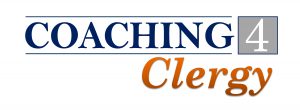
Lately, we’ve been hearing more from people who want to work with a coach, along with the people who want coach training. Potential coaching clients have questions about how to find a coach, what to expect from the coaching process, and what happens when coaching comes to an end.
I’m going to answer these common questions in a series of posts, starting at the beginning with how to find a coach.
I strongly recommend that you work with someone who is accredited by a coaching organization, such as:
- The International Coach Federation (ICF)
- The European Mentoring and Coaching Council (EMCC Global)
- The International Association of Coaching (IAC)
- The Association for Professional Executive Coaching & Supervision (APECS)
You wouldn’t want to see a dentist or heart surgeon who hadn’t been trained, credentialed, or accredited, and it’s the same with a coach.
Check the websites above for a “Find a Coach” section where you can search for a coach in your local area, or someone with a specific skill set or experience (we’ll talk more about that shortly).
The majority of people I end up coaching came to me because I’ve coached someone they know, so ask around for referrals. Have any of your colleagues, friends, or family members worked with a coach? Would they recommend that person?
Most reputable coaches will offer a complimentary session or at least an opening conversation. This is a great way to find out if the coach is a match, and also to find out if coaching is for you.
When you’re meeting with a prospective coach, pay attention to how you’re feeling. Do you feel safe? Can you speak easily with this person? You’re going to want to share things with them through the coaching process, can you do that easily?
There are a multitude of coaching styles and approaches, not to mention individual personalities and quirks. Does this person seem to be a match for where you are and what you need at this time?
For example, my first coach had an edge to him; he pushed. At other times in my life, I didn’t want that edge; I wanted a different approach. But at that time it was exactly what I needed. He also happened to be a former insurance salesman, which leads to my next point.
People think they need to work with a coach who has experience in their area, but that’s not always necessary or not even always the best case. Coaching is not about telling and advising, it’s more about drawing the insights and solutions out of the client.
If your coach has experience in your field it’s really tempting to want to ask your coach what you should do. It’s not always the case, but it’s a good reason to not limit your search to coaches with specific experience with your situation.
How much will coaching cost? Budgets are a reality, so price does become a factor in choosing a coach. I encourage you to see the coaching fee as an investment in yourself, in your personal development, similar to a class or training. Most of the professionals I coach have access to some kind of professional development funding from their company, so it’s worth looking into whether this is a possibility.
Some coaches offer a sliding scale. What I’ll do is offer someone monthly sessions instead of the two or three times a month I see most clients. Or I’ll suggest they join one of my coaching groups, which is another option that is more affordable than individual coaching.
Since we run a training school, we have a number of people who approach us about working with student coaches, and this is another option for affordable coaching. The client gets coaching at a reduced rate, and our students get real-life experience. It’s truly a win-win for both parties.
If you’re feeling pressured to sign up for an expensive coaching program, or any kind of coaching, run for the hills. The right coach will never pressure you to decide and will work with you to meet your budget or help you find another coach.
The bottom line is you’ll know when you’ve found the right coach for you. Don’t settle just because you’re still new to being coached and you’re not sure how it should feel or what you want.
Be coached by a couple of people, so you can compare. You’ll walk away from a conversation with the right coach feeling like you can conquer the world. And if you don’t, it’s perfectly okay to say, thank you, I enjoyed the coaching, but I’m going to try someone else.

 Coaching Someone You Know
Coaching Someone You Know